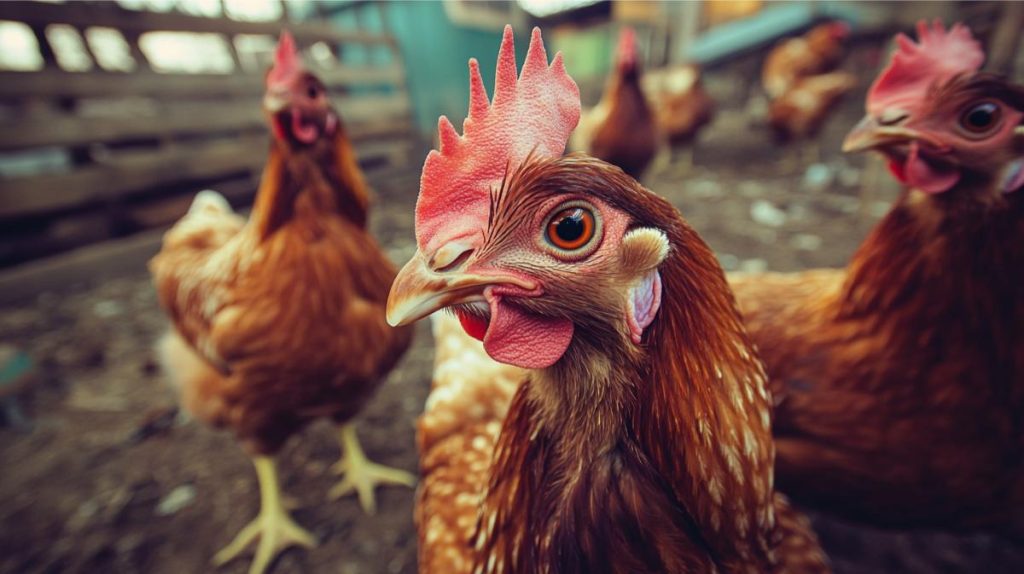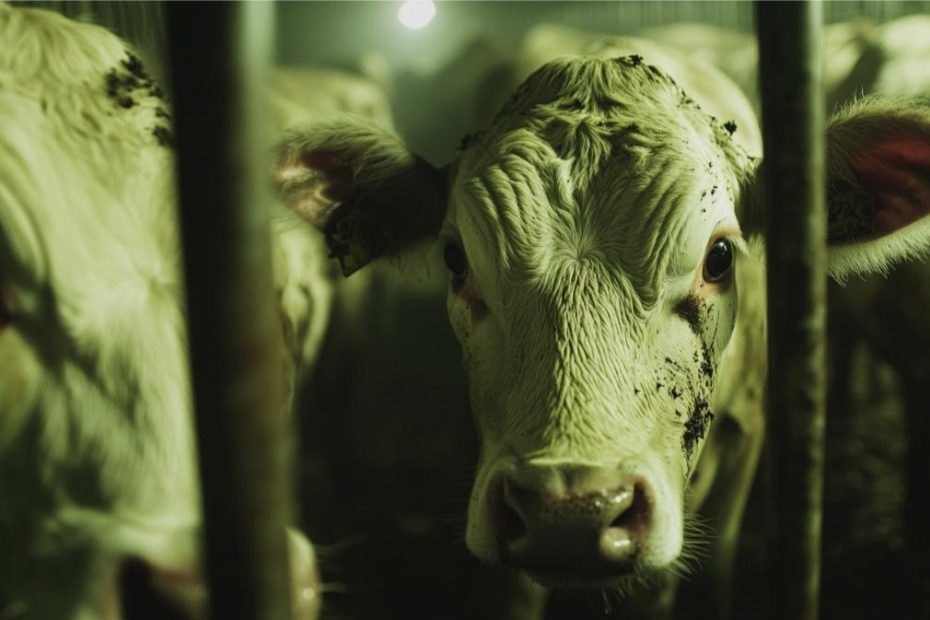The meat industry keeps a lot of secrets. You might think your burger came from a happy cow on a sunny farm, but the reality is often very different.
Factory farms raise animals in crowded, stressful conditions that most people would find shocking if they saw firsthand.
Many companies don’t want you to know what really happens behind closed doors. They use clever marketing to show idyllic farm scenes, while the truth is much grimmer.
Animals often suffer in cramped spaces without access to the outdoors. They may face painful procedures without pain relief.
You have the right to know where your food comes from. By learning about animal treatment in the meat industry, you can make more informed choices about what you eat.
There are better options out there for people who care about animal welfare.
Key Takeaways
- Factory farms often keep animals in poor conditions
- Marketing hides the reality of how meat is produced
- Knowing the truth lets you make better food choices
Unveiling the Reality of Animal Agriculture
Animal farming isn’t all green pastures and happy cows. You might be surprised to learn what goes on behind the scenes.
Let’s take a peek at some eye-opening facts about how your food gets from farm to plate.
The Dark Side of Factory Farming

Ever wondered where most of your meat comes from? Factory farms are the not-so-secret answer.
These industrial-scale operations cram animals into tight spaces, prioritizing profit over comfort.
Chickens often have less space than an iPad to live in. Can you imagine that? It’s like being stuck in an elevator 24/7!
Cows and pigs don’t fare much better. They’re often kept in cramped stalls or pens with little room to move.
This leads to stress and health issues for the animals.
Antibiotics are used heavily to prevent diseases in these crowded conditions. It’s like giving medicine to healthy kids just in case they might get sick!
Slaughterhouses and Meat Production: A Tale of Two Evils
Slaughterhouses aren’t for the faint of heart. Animals often face stress and fear before and during slaughter.
Did you know that cows can sense fear and stress from other animals? It’s like they’re in a real-life horror movie.
Workers in these facilities also face challenging conditions. High-speed production lines can lead to accidents and injuries.
The meat industry often lobbies for less oversight and faster production lines. It’s like asking to drive faster on a busy highway!
The Environmental Toll: Beyond the Dinner Plate
Your burger has a bigger impact than you might think! Animal agriculture is a major contributor to greenhouse gas emissions.
Cows are cute, but they’re gassy! Their burps and, ahem, other emissions release methane, a potent greenhouse gas.
Water usage in animal farming is sky-high. It takes about 1,800 gallons of water to produce one pound of beef. That’s like filling your bathtub 36 times!
Deforestation for grazing land and feed crops is another big issue. It’s as if we’re trading trees for steaks.
Plant-based alternatives are gaining popularity as a more sustainable option. Have you tried any yet?
The Ripple Effect: Public Health and Ethical Dilemmas

The meat industry’s practices have far-reaching consequences. They affect your health and raise important moral questions about how we treat animals.
Public Health at Stake: The Unseen Costs
Did you know your burger could be a hidden health risk? Antibiotic resistance is a growing threat, thanks to the overuse of antibiotics in livestock. Yikes!
The pork industry and egg production aren’t off the hook either. They’re part of a system that’s cooking up a recipe for disaster.
Here’s a not-so-tasty tidbit:
- 80% of antibiotics in the U.S. are used in animal agriculture
- This practice contributes to the rise of superbugs
- These superbugs can make you seriously ill
But wait, there’s more! Meat consumption is linked to heart disease and certain cancers. Maybe it’s time to give those veggies a chance?
Ethics and Animal Rights: A Growing Movement
You wouldn’t treat your pet like a product, so why should farm animals be any different?
The push for humane treatment of animals is gaining momentum, and it’s about time! Food companies are feeling the heat with more folks are asking, “What’s the real cost of my meal?”
It’s not just about dollars and cents, but about the lives behind your dinner.
Here’s what’s cooking in the ethical kitchen:
- Plant-based food options are booming
- The Humane Society is pushing for better animal welfare laws
- Vegan diets are becoming more popular, and not just among hipsters!
You have the power to make a difference. Every meal is a chance to vote with your fork. Why not give those chickpeas a whirl?
